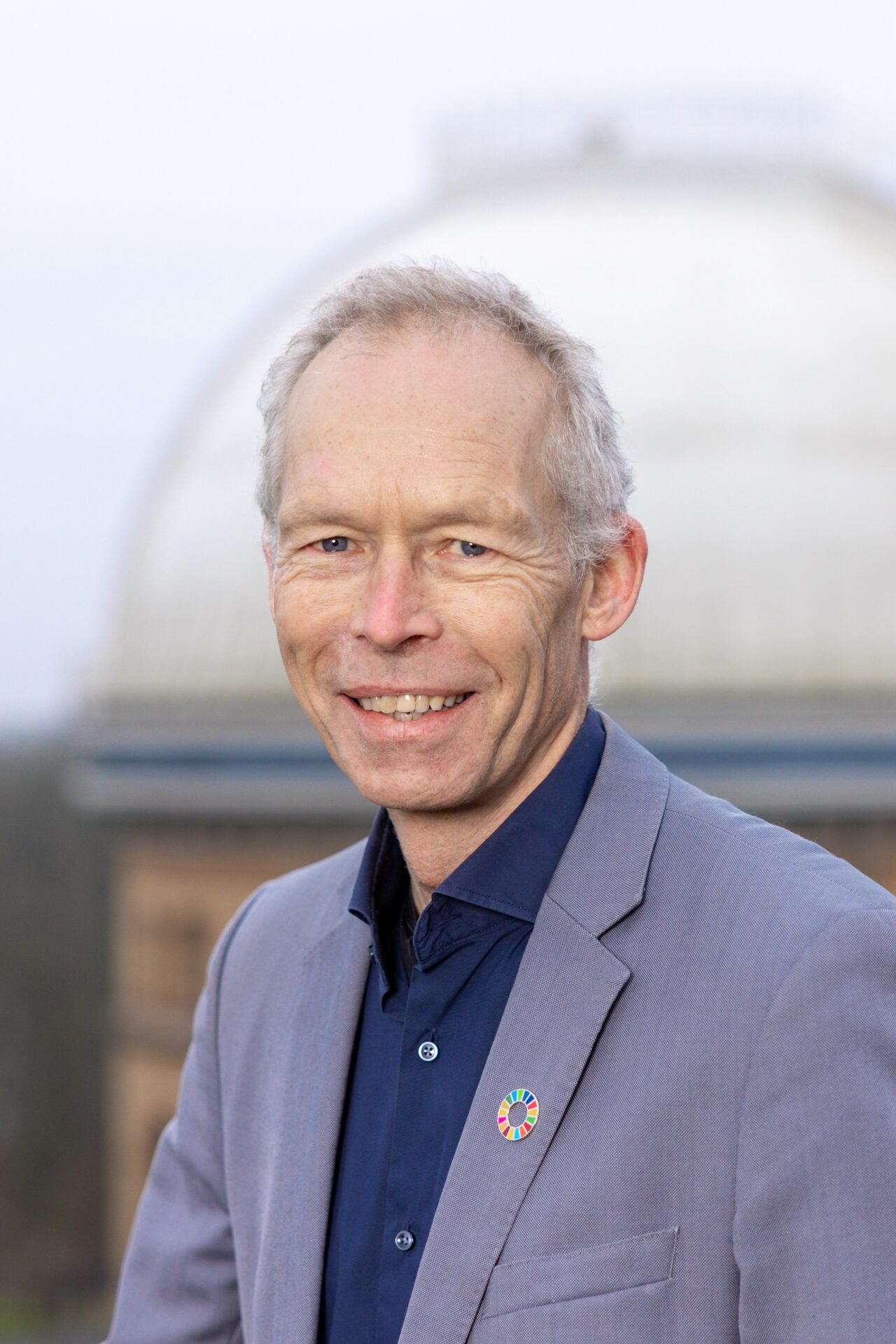Announcing Johan Rockström, Director of the Potsdam Institute for Climate Impact Research (PIK), as the winner of the 2024 Tyler Prize for Environmental Achievement for his pioneering work on the “Planetary Boundaries” framework, a scientific guide to help keep the planet in a safe operating space.

Credit: Jadranko Marjanovic
“We need to listen to scientists like Johan Rockström,” Harrison Ford said in response to the win. The vice chair of Conservation International—an environmental organization where Rockström also serves as chief scientist—Ford called Rockström “a trailblazer, a brilliant mind, a remarkable person.”
The Tyler Prize Executive Committee awarded the USD$250,000 Prize to Rockström for his “science-based approach to sustainable development for people on a stable and resilient planet.”
One of the most-cited researchers in the world, Rockström’s Planetary Boundaries framework identifies the natural systems supporting human life on Earth and the changes that can be safely made within them without severely altering life on the planet as we know it.
ABOUT THE PLANETARY BOUNDARIES
First published in 2009, the Planetary Boundaries integrate nine systems that determine the functioning and the state of the planet. They provide life-support to humans, and include systems we all rely upon, such as clean water, a stable climate, and vibrant biodiversity. This framework has helped shape public response to climate change and sustainable development, including the United Nations’ Sustainable Development Goals.
Humanity is “well outside of the safe operating space” on six of the nine Planetary Boundaries, according to the latest update on the Planetary Boundaries, published September 2023 in Science Advances.
“The Planetary Boundaries science is a critical measurement framework for the world to ensure we protect our life support systems,” said Mary Robinson, former president of Ireland and a Planetary Guardian. “I’m thrilled that Johan Rockström is receiving this prestigious prize. He has dedicated his life to getting the world to understand that we have already breached six of the nine Planetary Boundaries and the urgency with which we must reverse this trend.”
Transgressing too many Planetary Boundaries could, according to Rockström, risk “reaching tipping points that will undermine the Earth’s life-support systems.” The science of tipping points is also at the heart of Rockström’s work because it is a key metric used to determine safe Planetary Boundaries. “Push the Earth system too far and we risk that critical biological and physical systems, like forests and ice sheets, cross a tipping point, fundamentally shifting their state and functions,” Rockström said, citing the deforestation of the Amazon rainforest as one example.
“Systems that can tip between different states and which regulate the environmental conditions on Earth are dominated by feedbacks that buffer and dampen stress from global warming. Push them too far and they cross tipping points, making them shift from dampening to self-reinforcing, from cooling to warming.” This is a serious concern, continued Rockström. Crossing enough tipping points would risk “irreversibly shifting” the planet from a place that supports humanity as we know it to “a state that no longer helps us.”
ABOUT JOHAN ROCKSTRÖM
Born in Sweden, Rockström is also a dedicated field scientist, having spent over 25 years studying applied water research within tropical regions. The Planetary Boundaries framework has catapulted his scientific work into the public sphere and impacted public policy, being used to support the European Union’s legal instruments and included in United Nations official documents. A professor in Earth systems science at the University of Potsdam and professor in environmental science at the Stockholm Resilience Centre at Stockholm University, Rockström’s ability to communicate complex science in an accessible way has made him a well-respected figure in the media. He has co-authored books like “Breaking Boundaries: The Science of Our Planet,” which became a Netflix documentary narrated by Sir David Attenborough, and has appeared alongside Leonardo DiCaprio in the documentary “Before the Flood.” Several of his online talks have gone viral, generating millions of views and helping shape public discourse on environmental stewardship.
On May 17, 2024, Rockström will deliver a public presentation on his work, at the University of Potsdam in Germany and later that afternoon he will be presented with the Prize.
Members of the press interested in attending should email the media contact:
Kristin Deasy, kristin@reagencylab.com, +54 9 2944 36 3161
The Tyler Prize is administered by the University of Southern California.
Download the complete press packet via Google Drive
ABOUT THE TYLER PRIZE

Established in 1973 by the late John and Alice Tyler, the Tyler Prize for Environmental Achievement is one of the first international premier awards for environmental science, environmental health, and energy.
Recipients encompass the spectrum of environmental concerns, including environmental policy, health, air and water pollution, ecosystem disruption and loss of biodiversity, and energy resources. Individuals and organizations chosen have conferred great benefits upon mankind.
